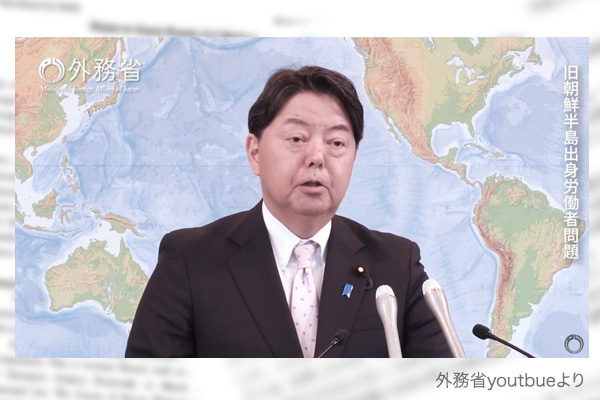A solution to the issue of wartime Korean workers in Japan, announced by South Korea’s Yoon Suk Yeol government on March 6, can be regarded as a temporary measure to avoid the worst deterioration of Japan-South Korea relations. Under the solution, a South Korean government-affiliated fund will pay compensation to former workers to avoid the worst deterioration of bilateral relations that could have been caused by the conversion of Japanese companies’ confiscated assets into cash. At the same time, the solution may be temporary because it could lose efficacy under a next South Korean government.
Concern about a South Korean government after Yoon
Of the 15 plaintiffs, composed of former wartime workers in Japan and the bereaved, who won Supreme Court rulings in 2018 ordering two Japanese firms to pay compensation to the plaintiffs, most have reportedly agreed to accept compensation payments from the fund. But several others including three former wartime workers refused to accept the payments. For refusers, the fund may deposit compensation payments to prevent the confiscated Japanese assets from being converted into cash. If the refusers file a complaint against the deposition, a court battle may continue. But the conversion of the Japanese assets into cash will be suspended for the time being.
Japanese government under Prime Minister Fumio Kishida has strongly urged the Yoon government to abandon its right of demanding the Japanese companies’ return of compensation payments to prevent the issue from being brought up by a next South Korean government. However, the announced solution does not include the abandonment of the right. Given that leftist opposition parties and mass media in South Korea have criticized the solution as representing humiliating diplomacy making concessions to victimizers, a government change may encourage the fund to exercise the right to reimbursement and confiscate assets of the Japanese companies again, reversing the solution.
While the solution can be given up as a temporary one, it can be appreciated as serving Japan’s national interests by paving the way for Japan to cooperate with the Yoon government in addressing the North Korean missile threat.
However, the basic premise for bilateral cooperation should be the resolution of an incident in which a South Korean naval ship directed its fire-control radar at a Japanese Maritime Self-Defense Force aircraft in 2018. The Yoon government should apologize to Japan for the radar direction that means a simulated attack and should punish those responsible for the incident. Many Japanese Self-Defense Forces members are still angered. The Kishida government should not seek gradual development of bilateral cooperation while leaving the incident unresolved.
Japan needs to communicate its message
On March 6, Japanese Foreign Minister Yoshimasa Hayashi reaffirmed that the Kishida government inherits successive cabinets’ position on historical perceptions. This reaffirmation should have been interpreted by Seoul that the Kishida government inherits repeated apologies by the successive administrations.
However, there is a gimmick regarding the apology. The Japanese government has offered the apology from moral point of view based on current values but never admitted its legal responsibility. It has maintained that (1) Japan is not liable for compensation for its rule of Korea as it was legal and that (2) the wartime mobilization of Koreans was neither coercive recruitment nor forced mobilization. Since the 1980s, however, the Japanese government has repeated the apology without expressing the above two points. Insomuch that South Korea has repeatedly blamed Japan for reversing the apology soon after offering it. The apology has deteriorated bilateral relations.
Unless Japan’s government and private sectors are united to proactively communicate the two points to the outside world, Seoul will surely criticize the Kishida government if the government makes the two points in the authorization of school textbooks or the promotion of an initiative to have the Sado Island goldmines registered as a World Cultural Heritage site. Japan’s government and private sectors are required to cooperate with like-minded South Koreans to fight against false historical perceptions.
Tsutomu Nishioka is a senior fellow and a Planning Committee member at the Japan Institute for National Fundamentals and a visiting professor at Reitaku University. He covers South and North Koreas.


